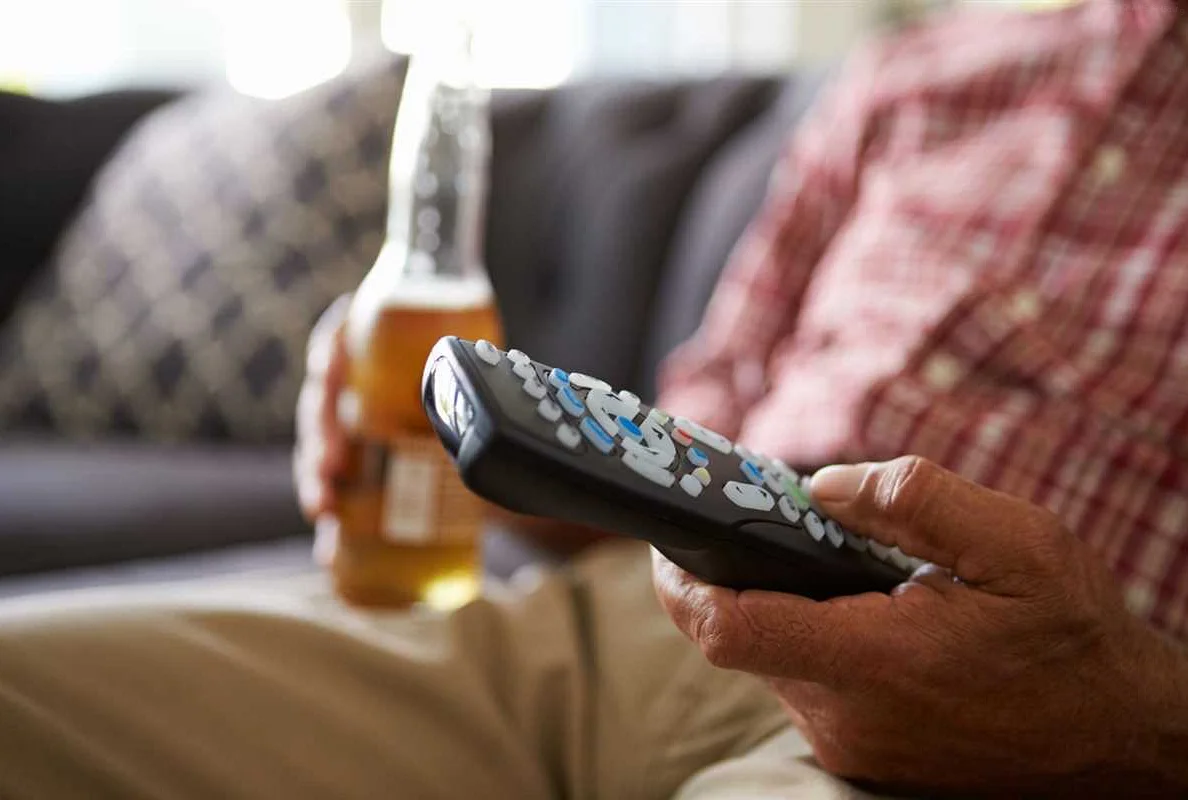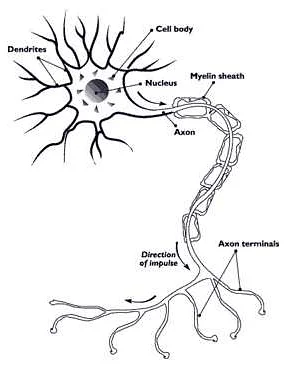5 Signs of Nerve Damage from Excessive Alcohol Consumption
Содержимое
Excessive alcohol consumption can lead to nerve damage in the body. Look out for these 5 signs that may indicate nerve damage: numbness or tingling in the extremities, muscle weakness, difficulty coordinating movements, problems with balance and coordination, and chronic pain. If you experience any of these symptoms, it is important to seek medical attention and consider reducing alcohol intake to prevent further damage.
Excessive alcohol consumption can have severe consequences on our health, and one of the most concerning effects is nerve damage. Alcohol-related nerve damage, also known as alcoholic neuropathy, can lead to a range of symptoms that affect our ability to move, feel, or control bodily functions. It’s important to be aware of the warning signs of nerve damage caused by excessive alcohol consumption, as early diagnosis and treatment can improve the chances of recovery.
1. Numbness and Tingling: One of the earliest signs of alcoholic neuropathy is a tingling or numbness sensation in the extremities, such as the hands and feet. This may feel like pins and needles or a loss of sensation altogether. These symptoms can worsen over time and may even progress to pain or burning sensations.
2. Muscle Weakness and Cramps: As alcoholic neuropathy progresses, individuals may experience muscle weakness, especially in the legs. This can lead to difficulty walking or maintaining balance. Muscle cramps and spasms may also occur, causing discomfort and further impairing mobility.
3. Loss of Coordination: Alcohol-related nerve damage can affect the brain’s ability to communicate with the muscles, leading to a loss of coordination. Individuals may find it challenging to perform simple tasks that require fine motor skills, such as buttoning a shirt or picking up small objects.
4. Digestive Issues: Nerve damage can also impact the digestive system, resulting in symptoms such as nausea, vomiting, diarrhea, or constipation. These gastrointestinal problems can be debilitating and may worsen if alcohol consumption continues.
5. Sexual Dysfunction: Alcoholic neuropathy can cause sexual dysfunction in both men and women. Men may experience erectile dysfunction, while women may have difficulty achieving orgasm. These issues can have a significant impact on relationships and overall quality of life.
If you or someone you know exhibits any of these warning signs, it’s crucial to seek medical attention promptly. While nerve damage caused by excessive alcohol consumption can be debilitating, early intervention and abstinence from alcohol can help prevent further damage and improve the chances of recovery.
Loss of sensation in extremities
Excessive alcohol consumption can lead to nerve damage, which can result in a loss of sensation in the extremities. This can include numbness, tingling, or a feeling of pins and needles in the hands, feet, arms, or legs.
Alcohol affects the nervous system and can damage the nerves that transmit signals from the brain to different parts of the body. When these nerves are damaged, they may not be able to properly send or receive signals, leading to a loss of sensation.
Loss of sensation in the extremities can make it difficult to perform daily tasks and can impact the quality of life. It can affect coordination, balance, and the ability to feel pain or temperature changes.
If you are experiencing loss of sensation in your extremities and you are a heavy drinker, it is important to seek medical attention. A healthcare professional can evaluate your symptoms and determine the underlying cause. They may recommend lifestyle changes, such as reducing alcohol consumption, to help prevent further nerve damage.
It is important to note that nerve damage caused by excessive alcohol consumption can be irreversible. Therefore, it is crucial to take steps to prevent further damage and seek treatment as soon as possible. Quitting or reducing alcohol consumption can help prevent further nerve damage and improve overall health and well-being.
Muscle weakness and coordination problems

Excessive alcohol consumption can lead to muscle weakness and coordination problems. When alcohol enters the body, it affects the central nervous system, including the nerves that control muscle movement. This can result in a decrease in muscle strength and difficulty with coordination.
Individuals experiencing muscle weakness may find it difficult to perform everyday tasks that require physical strength, such as lifting objects or walking up stairs. They may also notice a decrease in their overall coordination, making it challenging to maintain balance or perform precise movements.
These symptoms can be particularly dangerous, as they increase the risk of falls and accidents. It is important to seek medical attention if muscle weakness and coordination problems are present, as they may be a sign of nerve damage caused by excessive alcohol consumption.
In some cases, muscle weakness and coordination problems may improve with abstinence from alcohol. However, it is crucial to consult a healthcare professional for a proper diagnosis and treatment plan. They can provide guidance on managing symptoms and preventing further nerve damage.
Additionally, individuals should consider seeking support from alcohol rehabilitation programs to address the underlying issue of excessive alcohol consumption. These programs can help individuals develop healthy coping mechanisms and provide the necessary tools for long-term recovery.
Tingling or numbness in hands and feet

One of the warning signs of nerve damage caused by excessive alcohol consumption is tingling or numbness in the hands and feet. This condition, known as peripheral neuropathy, occurs when the nerves in these areas are damaged.
Excessive alcohol consumption can lead to a deficiency in certain vitamins and minerals, such as thiamine and vitamin B12, which are essential for nerve health. When these nutrients are lacking, the nerves can become damaged, resulting in symptoms like tingling or numbness.
Tingling or numbness in the hands and feet can also be a sign of alcoholic neuropathy, a specific type of peripheral neuropathy associated with alcohol abuse. This condition typically affects long-term heavy drinkers and is characterized by damage to the peripheral nerves.
If you experience tingling or numbness in your hands and feet, especially after consuming alcohol, it is important to seek medical attention. Early detection and treatment of nerve damage can help prevent further complications and improve overall health.
- Pay attention to any changes in sensation in your hands and feet.
- Consult a healthcare professional if you experience persistent tingling or numbness.
- Make sure your diet includes adequate amounts of thiamine and vitamin B12.
- Reduce or eliminate alcohol consumption to promote nerve health.
- Consider seeking support or treatment for alcohol abuse if necessary.
Chronic pain in affected areas
One of the warning signs of nerve damage caused by excessive alcohol consumption is chronic pain in the affected areas. Nerve damage can lead to persistent pain that is often described as a burning, tingling, or shooting sensation.
Excessive alcohol consumption can damage the nerves, leading to a condition known as alcoholic neuropathy. This condition commonly affects the peripheral nerves, which are responsible for transmitting signals between the central nervous system and the rest of the body.
Chronic pain caused by nerve damage can be debilitating and can significantly impact a person’s quality of life. The pain may be constant or intermittent, and it may worsen over time. Individuals experiencing chronic pain should seek medical attention to determine the underlying cause and explore treatment options.
Managing chronic pain caused by nerve damage often involves a combination of medications, physical therapy, and lifestyle changes. In some cases, the damage may be irreversible, and the focus of treatment will be on managing symptoms and improving quality of life.
It is important to note that chronic pain in affected areas can have various causes, and excessive alcohol consumption is just one potential factor. It is always best to consult with a healthcare professional for an accurate diagnosis and personalized treatment plan.
Difficulty with balance and walking

One of the warning signs of nerve damage caused by excessive alcohol consumption is difficulty with balance and walking. Alcohol can affect the brain’s ability to communicate with the muscles and nerves responsible for maintaining balance and coordinating movement. This can lead to problems with coordination, unsteady gait, and difficulty walking in a straight line.
Individuals with nerve damage caused by alcohol may find it challenging to maintain their balance, especially when standing or walking on uneven surfaces. They may experience a lack of coordination and feel unsteady on their feet. This can increase the risk of falls and injuries, especially in older individuals.
If you are experiencing difficulty with balance and walking, it is important to seek medical attention. A healthcare professional can evaluate your symptoms, perform necessary tests, and recommend appropriate treatment options. Treating the underlying nerve damage and addressing alcohol consumption can help improve balance and reduce the risk of further complications.